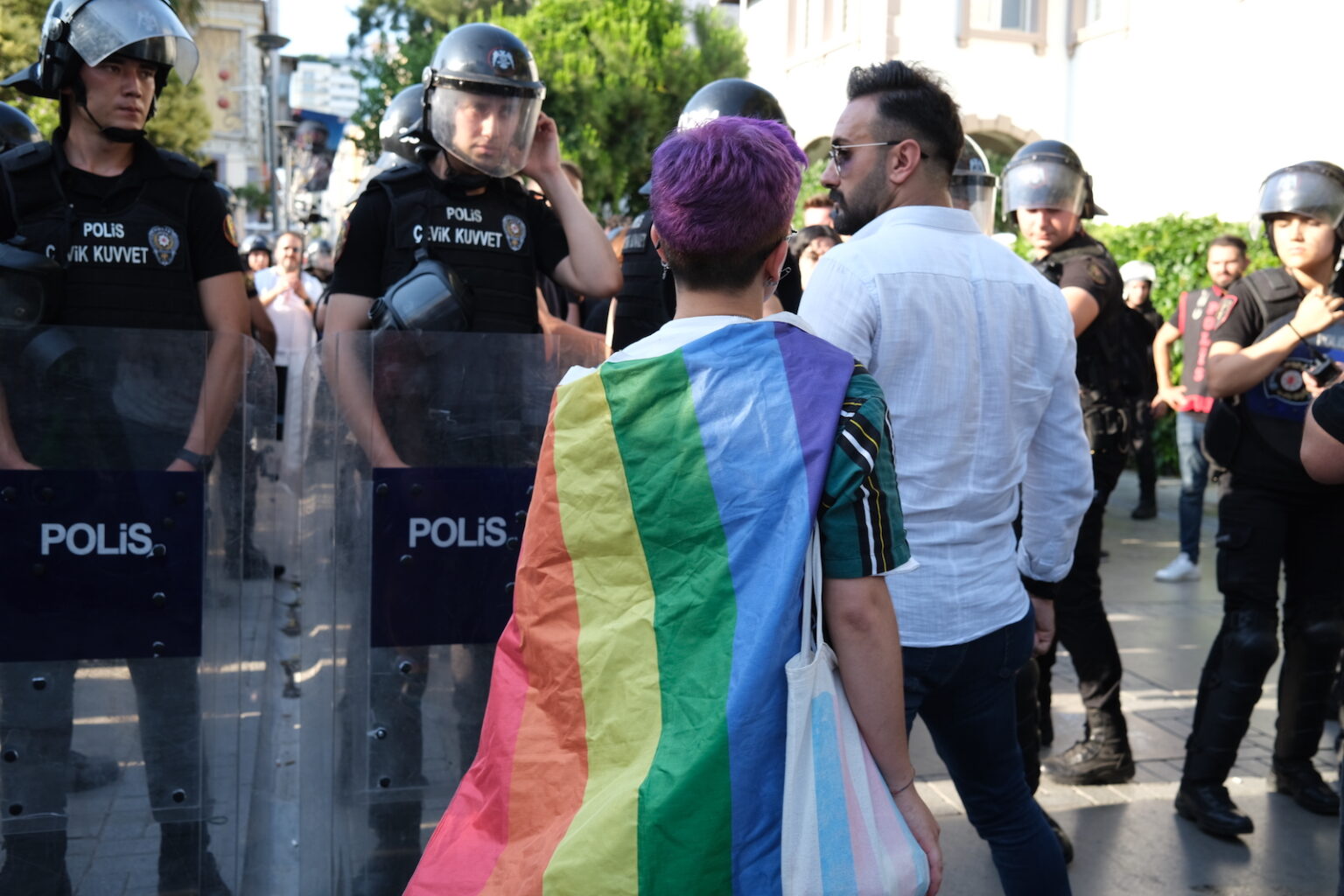What we can learn from LGBTI activists against all odds

In countries where governments are pushing back on LGBTI people’s rights, joining Pride events is a courageous act that carries higher risks. However, it is in their invisible, everyday work where LGBTI activists showcase their most profound courage. The LGBTI movement in Turkey, as well as in Armenia and Azerbaijan, serve as remarkable examples of resilience against all odds. Keep reading to discover some key insights from our movement and find out more in our podcast.
“Take a moment and imagine yourself in this context,” begins Anastasia Smirnova, ILGA-Europe’s Programmes Director in a recent episode of The Frontline. “For eight years, you’ve been living amidst detentions, smear campaigns, cases against LGBTI activists, and violence that goes unpunished. Extremism and terrorism are terms often associated with the LGBTI movement. You vividly remember last year’s Pride events where hundreds were detained and subjected to police violence.”
This is not a fictional scenario but the daily reality of LGBTI activists in Turkey. Led by recently re-elected President Erdoğan, the Turkish government has intensified systematic attacks on LGBTI people since 2015, when the Istanbul Pride march was banned for the first time.
“So, would you show up at the Pride events in Turkey this year?” asks Anastasia.
“Not an imaginary you – not the bravest and most courageous version of you living in a vacuum. But the real you, with your life circumstances, responsibilities, and current challenges. What would inspire and empower you to show up, ready to face violence and knowing that detentions are possible?”
LGBTI activists in Turkey, and in countries where the government actively opposes LGBTI rights and existence, face potential repercussions, including in their personal lives. But instead of being discouraged by Erdogan’s hostility exhibited during the elections and the previous nine years in office, LGBTI activists in Turkey have organised a record number of Pride events over the spring and summer.
Despite all the risks and knowing that 500 people were detained during Pride season in 2022, they continue to show up.
“It is hard to imagine a stronger and clearer display of strength, solidarity, and resilience than LGBTI people and allies in Turkey taking to the streets, participating in the broader political context, and using their voices despite years of political intimidation,” says Anastasia.
Activism beyond Pride events
They do this not only during Pride season but every day. “For this to be possible, massive invisible work has to happen daily.” This work, unlike Pride events, will not make headlines. Yet, this is the work that enables people to continue showing up and grow their strength in numbers.
Prides and public protests are not the only signs of a strong movement. Referring to the countries at the bottom of our Rainbow Map ranking, where freedom of assembly is severely restricted, “people’s power manifests very differently, and often not on the surface,” explains Anastasia
Examples are offering expertise pro bono, contributing money, helping build connections with businesses, other civil society organisations, the media, among professionals or in educational, cultural, or healthcare spaces.
“It is people doing what they can in their immediate environment to improve the situation of LGBTI people, creating an alternative layer in society that counters state-sponsored anti-LGBTI ideologies,” says Anastasia.
What Turkey, Armenia and Azerbaijan teach us
The three countries at the bottom of the Rainbow Europe scale in 2023 are Azerbaijan, Turkey, and Armenia, the same as the last three years. Yet, the LGBTI movement in these countries offers valuable lessons for all LGBTI groups across the board.
“Over the last 15 years, we’ve seen not only how countries can advance but also how human rights and freedoms are attacked,” says Mehmet Akin, Senior Communications Officer with ILGA-Europe.
When anti-democratic representatives instrumentalise LGBTI people for their own political gain, the freedoms of LGBTI people are gradually taken away. Countries at the top of our ranking are not immune to these anti-democratic forces, who are increasing their presence across the region.
“This is a wake-up call from countries at the bottom of the ranking to those at the top, as LGBTI rights are one of their primary targets,” says Mehmet.
Despite all hardships, LGBTI movements in Russia or Turkey, but also in the EU, as in Poland or Hungary, have developed effective strategies for advocacy, community building, and exercising their freedom of assembly and expression.
“I think activists at the top of our list can learn from the countries at the bottom in terms of the experience they’ve already gained in continuing their work despite legal regression and societal repression,” concludes Mehmet.
Listen to the complete episode and learn more about the strength of the movement against all odds here and to all episodes about our Rainbow Map here.
Photo credits: Murat Kocabaş / Kaos GL